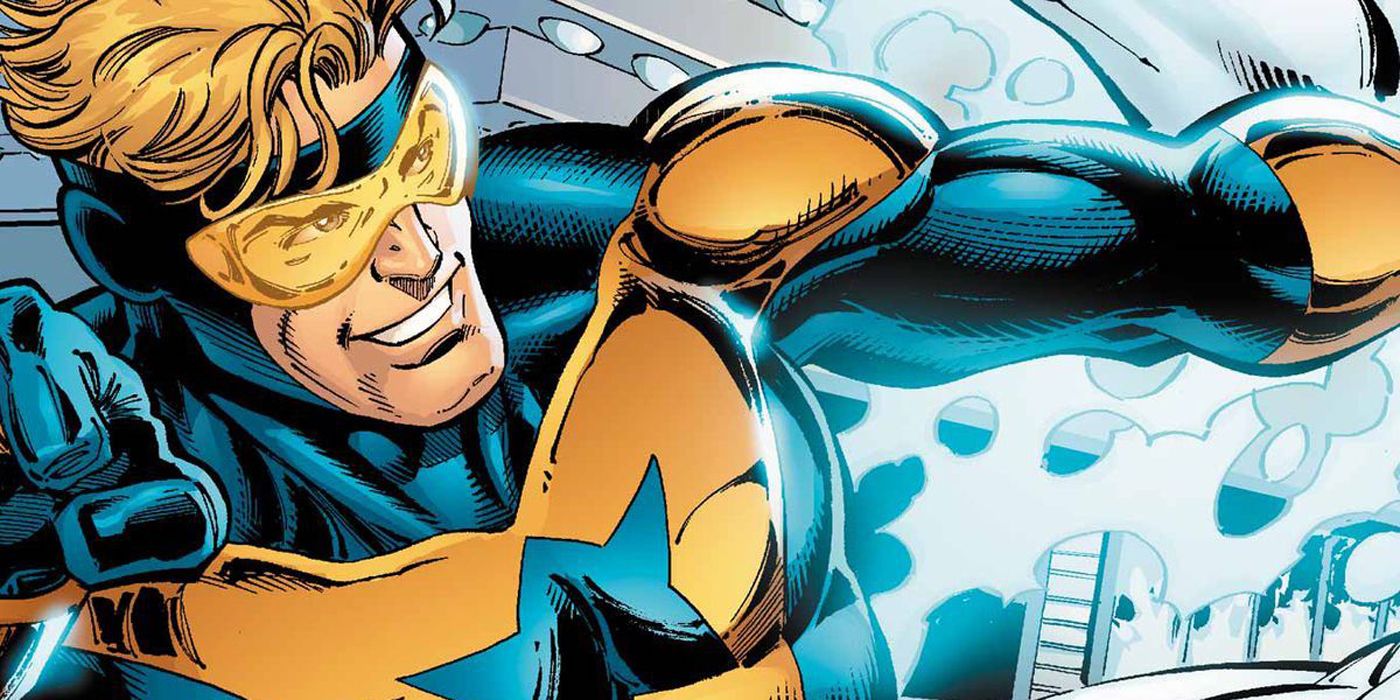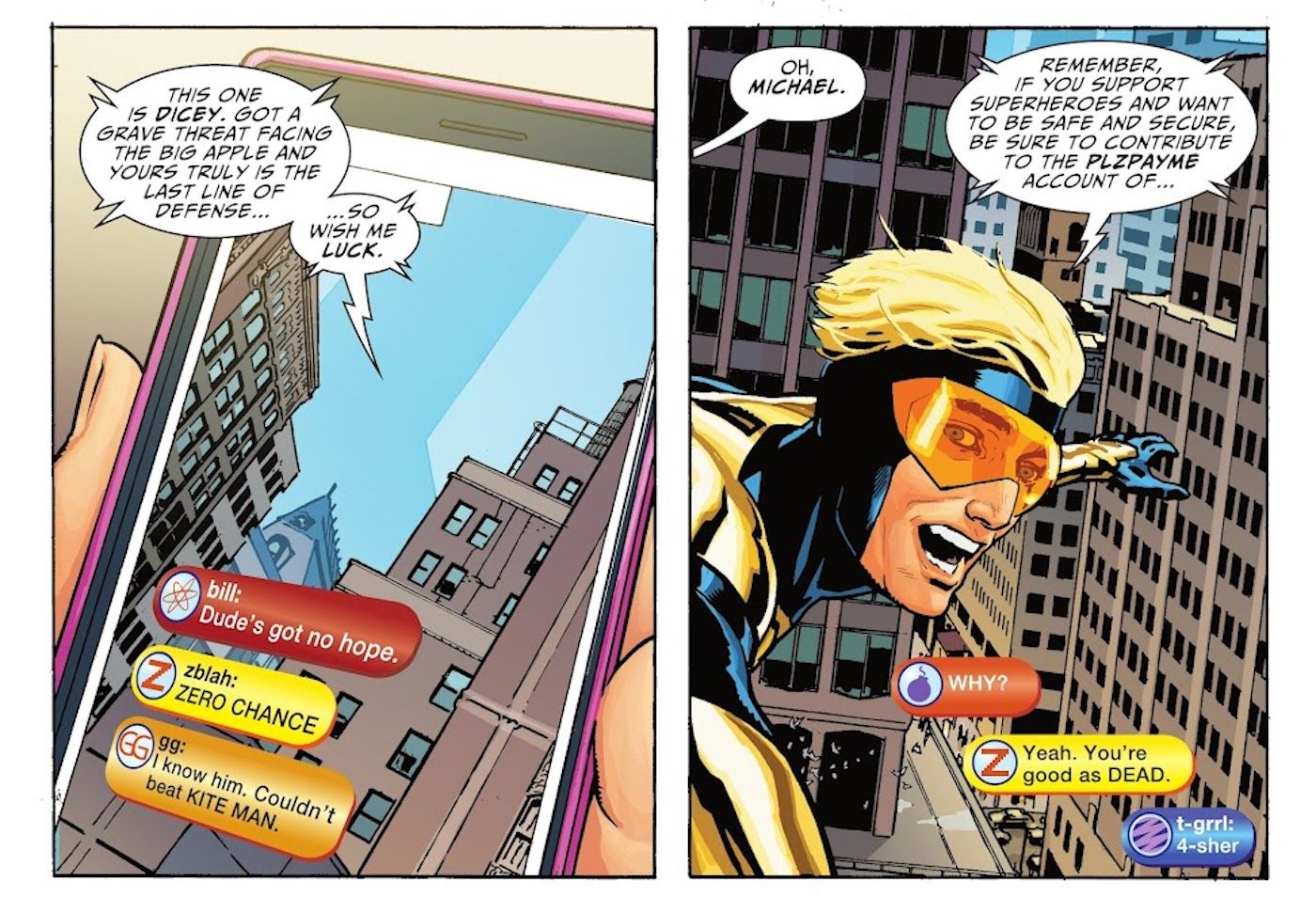Warning! Spoilers for Blue & Gold #1 ahead!
DC Comics’ Justice League has some of comics biggest heavy hitters and most recognizable heroes. And it turns out you may need to be in the 1 percent to make it as a member of the elite team.
The Justice League has some big names in its roster. They also have some of comics’ richest individuals. From billionaire Bruce Wayne, Diana Prince’s riches, and Clark Kent’s solid paycheck as a high-paid journalist, it’s unlikely that any of the Justice League members are struggling keeping the lights on. In fact, a number of them are household names whose celebrity status or place as figureheads in popular culture offer them opportunities and funds to continue fighting crime. And, while all of the methods of accruing their excess billions may not be exactly legal or on-the-level, some could argue that the ends justify the means.
In Blue and Gold #1 by Dan Jurgens and Ryan Sook, audiences are reintroduced to Mike Carter, aka Booster Gold, as he dives into action to fight the newest threat against New York City—and he’s not going alone. With him, is a crowd of livestream viewers who are all watching him fight crime. Superhero work is now content, and—like many individuals who ply their trade on online platforms—Booster Gold is asking for donations. While it may seem cheap to some to ask for money for crime fighting, it’s Booster Gold himself who rightly points out that he is “one of the few heroes who aren’t bazillionaires”. Even superheroes, it seems, need to eat.
Carter isn’t the only hero to struggle with money troubles. While DC Comics typically skates around these issues, recently in The Flash #772 by Jeremy Adams and Will Conrad, readers got a glimpse of Wally West as he is faced with the typical pile of bills and little to no money coming in from the superhero business. The lack of money from doing a public service and being one of the frontline fighters against the weird and dangerous people and aliens of the universe is what eventually forces Wally to search for a job to cover the bills.
For Booster Gold, superheroing is how he has chosen to make his money, not how he spends it. And, much like Wally discovers, there’s not much money in hero work. While Carter is able to save the day and the Justice League—with the help of Ted Kord aka Blue Beetle—it is interesting to note that it's not the average, if somewhat rascally, Carter who is extended an offer to join the League, but the Kord Industries-backed Blue Beetle. Once again, wealth and tech are invited into the superhero club.
DC affirms in the comic that being a superhero is less accessible for the plucky citizen and more likely to be a hobby of the wealthy, suggesting that if Jeff Bezos ever grows bored of space there’s probably a spot on the Justice League for him.


